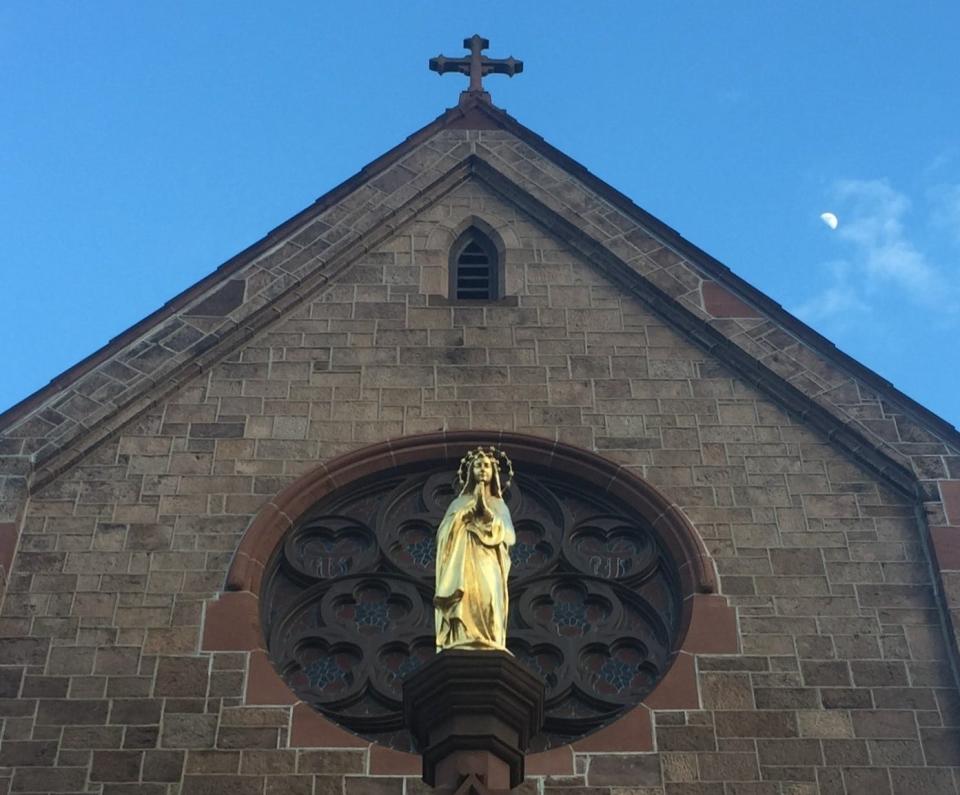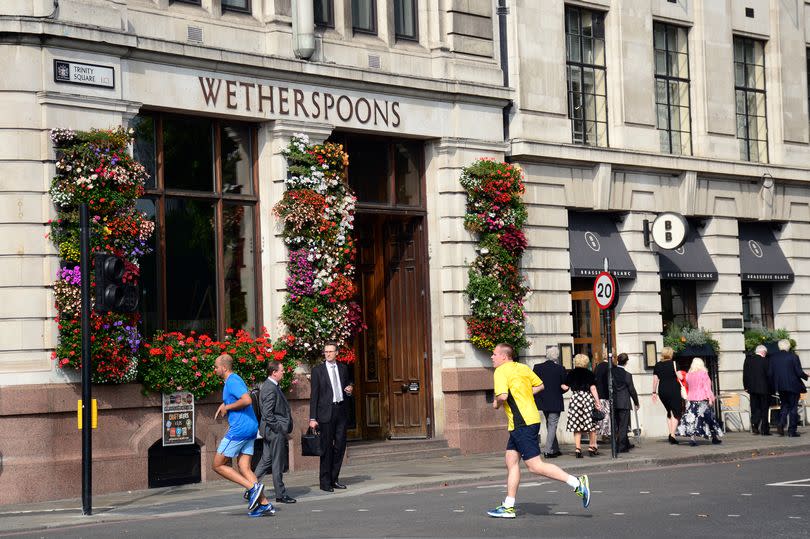When New Jersey’s attorney general announced an investigation into decades of alleged sexual abuse by Catholic clergy, survivors in the state hoped they would finally see the public reckoning they had long sought.
Nearly seven years have passed since then, but there’s been little sign the Attorney General’s Office is close to finishing the probe. The agency has been tight-lipped about its progress, if any, despite receiving hundreds of tips from alleged victims.
Court documents obtained by The Record and NorthJersey.com offer one explanation for the delay: One of New Jersey’s five Catholic dioceses succeeded in quashing a key part of the investigation at a secret hearing almost two years ago.
Advertisement
Advertisement
Those documents, which have not been publicly reported before, show that the Diocese of Camden challenged the state’s authority to empanel a special grand jury to lead the inquiry. That inquiry was supposed to end with a comprehensive report documenting individual abusers as well as any broader coverup by the church.

A statue of the Virgin Mary adorns the Cathedral of the Immaculate Conception in Camden. A challenge filed by the Camden diocese led to a court ruling that short-circuited New Jersey’s plans to investigate the Catholic church and sexual abuse.
At a May 25, 2023, court session attended by representatives of all five dioceses, state Superior Court Judge Peter Warshaw sided with Camden. He ruled that the state judiciary, which oversees grand juries, would “not take any action which enables the process of preparing such a presentment to move forward.”
The ruling at the Mercer County Courthouse was ordered sealed at the request of the diocese. It was upheld a year later by a state appeals court, though that court also denied a motion to keep the decision private. Until recently, however, the legal maneuverings were not widely known outside the circle of lawyers involved.
Inquiry would be ‘fundamentally unfair’
Siding with Camden, Warshaw ruled in a 73-page opinion that state law allows special grand juries to investigate public officials or government agencies, not a private institution like the Catholic Church or individual priests. He also questioned the fairness of a report that could accuse scores of clergy members but, because it did not include formal criminal indictments, would not allow them to challenge the evidence in court.
Advertisement
Advertisement
“The purposes for which the state seeks to use this grand jury would be fundamentally unfair to so many living and dead who would be forever accused in a document released by the court but to whom the court gave no opportunity to defend,” Warshaw said. He warned that the process could amount to the judicial version of a “hit-and-run.”
Clergy abuse victims and their advocates said they were shocked to learn of the decision.
“The bishops promised the public they would cooperate fully with the investigation, but meanwhile they secretly took this action to fight it,” said Mark Crawford of Woodbridge, who leads the New Jersey chapter of the Survivors Network of those abused by Priests, or SNAP. “It’s duplicitous. We’ve seen this before. They say one thing and do something else.”

Attorney Greg Gianforcaro, seen here at a 2019 news conference, says abuse survivors are pinning their hopes on an appeal to the New Jersey Supreme Court.
The case isn’t over yet. The ruling has been appealed to the New Jersey Supreme Court. That may be the only hope for abuse survivors seeking a public accounting, said Greg Gianforcaro, a Phillipsburg-based attorney who represents numerous abuse victims who have sued the dioceses.
Advertisement
Advertisement
More in U.S.
“What this decision means is that the court has effectively shut down the attorney general’s investigation into the clergy abuse scandal so there won’t ever be a New Jersey report,” he said. “The proceedings regarding the church’s attempt to keep this information hidden is not something that should have been kept from clergy abuse victims.”
Michael Symons, a spokesperson for the attorney general, told The Record on Tuesday that “the office has no comment” on the decision or the next steps by the state.
Dioceses back ‘transparency’
In a statement, the Camden Diocese said it “recognizes the serious, life-long harms suffered by the victims of abuse by clergy members. For more than 20 years, the diocese has complied with its obligations to report all allegations of abuse to the appropriate county prosecutor’s office and to the Attorney General’s Office.”
Spokesman Michael Walsh also noted that the diocese, which declared bankruptcy in the face of scores of lawsuits, had set aside more than $87.5 million for a trust to benefit abuse survivors.
Advertisement
Advertisement
As for the other four dioceses — based in Newark, Paterson, Metuchen and Trenton — Newark spokeswoman Maria Margiotta said in an email that all had “fully cooperated” with the state and had not been party to any court motions to impede the investigation. “We remain committed to the principles of transparency set forth in the 2002 Memorandum of Understanding between the State of New Jersey and each of the dioceses in New Jersey,” she said.
Whether they were party to the motion or not, the 2023 ruling shut down an investigation that could have shed light on actions by all of the dioceses, advocates for abuse victims said.
The advocates’ disappointment was a vast departure from the hope generated by then-New Jersey Attorney General Gurbir Grewal when he announced in September 2018 that he would form a task force to probe the extent of clergy sexual abuse in the state.
Grewal spoke forcefully about conducting a full investigation. He appointed former acting Essex County Prosecutor Robert Laurino, an experienced sex crimes prosecutor, to head a team of detectives on the task force. A hotline was established for victims to report their stories anonymously. “No person is above the law, and no institution is immune from accountability,” Grewal said.
Advertisement
Advertisement
He was acting days after the release of an explosive report by a Pennsylvania grand jury. Compiled over a two-year period and filling 1,400 pages, it documented widespread abuse by clergy as well as efforts by Catholic leaders in the Keystone State to conceal it.
As part of New Jersey’s investigation, Grewal planned to assemble a special state grand jury that could subpoena documents, compel testimony and, ultimately, compile a complete record of the scandal.

Then-Attorney General Gurbir Grewal promised a full investigation, after a Pennsylvania grand jury released an explosive report.
Advertisement
Advertisement
State, dioceses cooperated at first
The task force has secured indictments of three priests since then. But expectations for more charges, and a full report on the church’s actions, have yet to be fulfilled. Legal experts attributed the delays to the COVID pandemic, as well as the mountain of tips the state had to sift through and a shortage of judges in New Jersey. Despite repeated questions, the Attorney General’s Office has refused to explain the slow pace of the investigation.
In 2019, the five dioceses released a list of 188 clergy members who had been “credibly accused” of sexually assaulting children, but abuse advocates say the list is incomplete and hasn’t been updated despite new evidence.
According to Warshaw’s hearing, there was a measure of cooperation at the start of the attorney general’s investigation. The state subpoenaed church records dating back to Jan. 1, 1940, and the five dioceses produced “hundreds of thousands of pages” of documents.
Still, the state said the five failed to comply fully with requests, including subpoenas seeking evaluation and treatment records for specific priests accused of sexual assaults. By April 2021, the Attorney General’s Office obtained a court order directing the Camden Diocese and Newark Archdiocese to explain why they should not have to produce the documents. In May, attorneys for the Camden Diocese responded with a motion challenging the legality of the grand jury inquiry.
Advertisement
Advertisement
That brought the parties, ultimately, to the May 2023 hearing. Attending virtually or in person were state attorneys and lawyers for the five dioceses. Presiding on the bench was Warshaw, a former Monmouth County prosecutor appointed to the judiciary by Gov. Chris Christie in 2012.
The Record and NorthJersey.com first learned of a closed-door ruling about the clergy abuse investigation in December. Gianforcaro was able to provide a transcript of the hearing last week after learning that the appellate court had denied the request by the Camden Diocese attorneys to seal the order.
Warshaw’s ruling
In his ruling, Warshaw cited a series of objections to forming the grand jury. To start, such panels are intended to scrutinize acts by public officials and agencies, he said. While the clergy abuse scandal may be “of great public importance,” he argued, “the priests are not public officials and the Catholic Church is not a public entity no matter how expansive a definition of the term.” He cited the inability of accused clergy members, and the dioceses as a whole, to challenge accusations that would be published but not adjudicated in a courtroom. And he questioned whether those decades-old allegations represented “imminent” concerns, another standard required of special grand juries.
“The state is absolutely correct in arguing that the issue of sexual abuse by clergy members is vitally important. The public would no doubt benefit from the rendering of a comprehensive history,” Warshaw said. “But it is not for well-intentioned prosecutors to use the court’s grand jury to write a history which can never be meaningfully disputed.”
Advertisement
Advertisement
Pennsylvania’s grand jury investigation, Warshaw noted, included a series of recommended reforms to make it easier for sexual abuse victims to seek justice. By contrast, he said, New Jersey already had some of the same reforms in place, including an extension of the statute of limitations for bringing charges against alleged predators.
Washaw also cited the difficulty of what the Attorney General’s Office had proposed: It would have to assemble 23 grand jurors who did not have a conflict of interest, in a state where a high percentage identify as Catholic. Those jurors would have to commit to an investigation into hundreds of cases that involved disturbing allegations of child sexual assault, a process that could take well over a year.
More: Mariann Budde, bishop who challenged Trump, was shaped by ‘humble’ North Jersey roots
“Bluntly, this is a massive undertaking that the state contemplates,” the judge said.
Advertisement
Advertisement
Nothing in his order would prevent the attorney general or a county prosecutor from pursuing an indictment against specific individuals, he added.
Walsh, the Camden spokesman, said the issue before the courts was “purely a legal one: whether New Jersey law governing grand jury presentments only applies to public, governmental entities and public officials, not private entities. Through the 2002 Memorandum, the published list of credibly accused clergy, and the Diocese’s other child protection protocols, the Diocese has and remains committed to the protection of its youth.”
Abuse survivors, however, were bitterly disappointed by the decision. While New Jersey’s inquiry has stalled, at least 23 other states around the country, including New York, Kentucky, Nebraska and, most recently, Michigan, have conducted their own public reviews into local dioceses.
Todd Kostrub, 60, a clergy abuse survivor from Ocean County, said the church’s attempt to block a report only added more salt to his wounds.
Kostrub alleges that Kurt Munn, a Franciscan brother at Holy Assumption School in Roebling, molested him for about a decade, beginning in 1972, when he was 7. Munn later confessed his actions to a New Jersey State Police trooper.
“How can a victim heal when the church is using all its legal resources to shield the abusers?” Kostrub said. “Just when you think they can’t go lower, they continue to fight you.”
This article originally appeared on NorthJersey.com: How NJ Catholic diocese convinced court to block sex abuse inquiry
EMEA Tribune is not involved in this news article, it is taken from our partners and or from the News Agencies. Copyright and Credit go to the News Agencies, email news@emeatribune.com Follow our WhatsApp verified Channel




